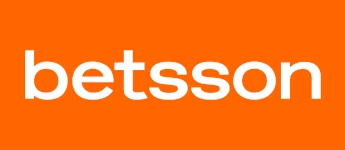 January 5 2025
January 5 2025
The gambling landscape in 2025 is poised for a transformative evolution marked by strategic advancements and significant policy changes. As the industry braces for these developments, stakeholders must remain vigilant to both opportunities and challenges.
A surge in problem gambling awareness has fueled the organizational depth of educational conferences, aiming to refine policies. Technological progress, such as the foray into digital currencies and crypto casinos, is redefining traditional paradigms, presenting new vectors for growth and regulation. Legislative efforts across key states reflect a spectrum from expansion to restriction, painting a complex legislative picture that is as diverse as it is dynamic. Amid this evolving environment, the focus on responsible gambling and public awareness via campaigns like those by the National Council on Problem Gambling underscores a commitment to ensuring that protections and support mechanisms keep pace with industry growth.
The pivotal role of problem gambling conferences in 2025 cannot be overstated, as they represent a concerted effort to address the challenges associated with gambling addiction. Events such as the Ohio Problem Gambling Conference and the Schreck Gaming Law Moot Court Competition bring together national experts to explore the latest strategies in intervention, treatment, and research.
These gatherings emphasize the importance of responsible gambling, promoting education and setting a foundation for preventative measures to safeguard vulnerable populations. Attendees benefit from in-depth discussions on innovative approaches to gambling prevention, fostering a collaborative environment where best practices are shared and new insights are formed. The amalgamation of diverse perspectives at these conferences ensures that efforts to combat problem gambling remain at the forefront of industry priorities.
Legislation remains one of the most influential forces shaping the future of gambling in 2025. States like Alabama and Texas provide compelling case studies into the legislative complexities driving industry change. Alabama's legislative body has concentrated on amplifying penalties for gambling-related offenses, signaling a desire to curb unregulated practices. In contrast, Texas showcases the intricate dynamics of legislative processes as efforts to introduce casino gambling have met resistance, illustrating the enduring debate over economic benefits versus social consequences. These examples highlight the vital role that political atmospheres and societal values play in steering state-specific gambling policies. The presence of nuanced, locally tailored approaches ensures that the legislative impact on the gambling industry continues to evolve, reflecting shifting attitudes and regulatory priorities.

As the landscape of gambling shifts, industry professionals find invaluable insights at leading events like ICE Barcelona 2025 and the NAGRA Annual Conference. These forums provide a platform for showcasing global trends, technological innovations, and regulatory updates. Participants are given the unique opportunity to network with peers, discuss the latest developments, and tackle pressing issues facing the industry. The digitalization of gambling, exemplified by burgeoning discussions on cryptocurrency use in gaming environments, commands significant attention, indicating a paradigm shift towards more secure, transparent transactions and enhanced user experiences. Such events are critical for fostering an informed, proactive approach to the opportunities and challenges that lie ahead, ensuring that industry stakeholders remain equipped to navigate these developments strategically.
The trajectory of sports betting in 2025 indicates varied progress across states, influenced by differing economic and social priorities. States like Georgia and Minnesota are making calculated strides towards legalization, weighing the potential economic uplift against regulatory challenges. Meanwhile, Texas showcases the more cautious approach some states adopt, focusing heavily on the implications same might have on community welfare and existing gaming structures. The conversation around sports betting legalization is enriched by the inclusion of digital currency and blockchain technology, illustrating the multifaceted nature of contemporary legislative dialogues. Prospective legalization not only adds depth to state economies through increased tax revenues but also necessitates stringent regulatory frameworks to address digital-era challenges effectively.
Initiatives centered around responsible gambling continue to foster important dialogues, bridging the gap between gaming enjoyment and social responsibility. Organizations like the National Council on Problem Gambling advocate for increased public awareness, emphasizing neutrality on legalization while providing essential consumer protections and support systems. Campaigns are designed to educate the public on recognizing at-risk behaviors and accessing recovery resources, nurturing an informed community that values healthy gaming practices. This persistent advocacy highlights the industry's dedication to mitigating the adverse effects of gambling, ensuring that as the industry evolves, so too does its commitment to the welfare of its participants. The continuous emphasis on responsibility reflects a fundamental cultural shift towards a more balanced approach to gambling in 2025.
The dynamic landscape of gambling in 2025 demands a nuanced understanding of these multifaceted developments. As the industry moves forward amidst technological innovations and legislative upheavals, nurturing a culture of responsibility and strategic insight will be essential. Discover more about options and developments through trusted resources such as CasinoGamesOnNet.com and InstantWithdrawalCasino.com.


Curacao-License


Curacao-License
 There is a No Deposit Bonus available: 20 Free Spins
There is a No Deposit Bonus available: 20 Free Spins


Curacao-License



Curacao-License
 There is a No Deposit Bonus available: 30 Free Spins
There is a No Deposit Bonus available: 30 Free Spins


Curacao-License
 There is a No Deposit Bonus available: 30 Free Spins
There is a No Deposit Bonus available: 30 Free Spins


Curacao-License
 There is a No Deposit Bonus available: 20 Free Spins
There is a No Deposit Bonus available: 20 Free Spins


Curacao-License


Malta-License (EU)


Curacao-License
 There is a No Deposit Bonus available:
25 Free Spins
There is a No Deposit Bonus available:
25 Free Spins


Curacao-License
 There is a No Deposit Bonus available: 30 Free Spins
There is a No Deposit Bonus available: 30 Free Spins


Curacao-License
 There is a No Deposit Bonus available: 100 Free Spins
There is a No Deposit Bonus available: 100 Free Spins


Curacao-License


Malta-License (EU)


Curacao-License


Curacao-License